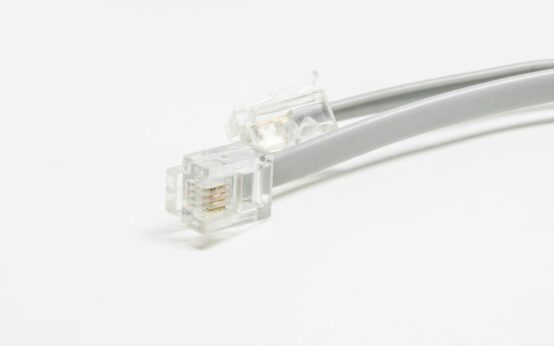The Future of On-Chain Credit Scoring and Uncollateralized Debt
Imagine a world where your financial reputation isn’t locked within the walls of traditional institutions. A world where access to capital isn’t predicated on your past, but on your verifiable on-chain activity. This isn’t science fiction – it’s the promising future of on-chain credit scoring and uncollateralized debt within Decentralized Finance (DeFi).
Key Takeaways
- On-chain credit scoring provides a transparent and accessible alternative to traditional credit systems.
- Uncollateralized debt opens up DeFi to a broader audience, fostering financial inclusion.
- Challenges like privacy and standardization need to be addressed for mass adoption.
Understanding On-Chain Credit Scoring
Traditional credit scoring systems are often opaque, centralized, and discriminatory. On-chain credit scoring flips the script. It leverages blockchain technology to assess creditworthiness based on a user’s verifiable on-chain history – transactions, lending and borrowing activities, and participation in DeFi protocols. Think of it as a persistent, transparent ledger that speaks volumes about your financial behavior.

The Power of Uncollateralized Debt
In traditional finance, borrowing often requires collateral – an asset pledged to secure a loan. This limits access for many. DeFi’s promise of permissionless finance finds its fullest expression in uncollateralized debt. By assessing creditworthiness on-chain, protocols can extend loans without requiring collateral, opening doors for a wider range of users, particularly in underbanked regions.
Benefits of this Dynamic Duo
The combination of on-chain credit scoring and uncollateralized debt offers numerous advantages. Increased transparency builds trust, fosters competition, and empowers borrowers. Faster loan processing and lower costs become a reality. And perhaps most importantly, financial inclusion becomes attainable for a global population underserved by traditional systems. Isn’t that a future worth striving for?
Addressing the Challenges
While the future is bright, challenges remain. Privacy concerns around publicly visible on-chain data must be addressed. Standardization of credit scoring methodologies is crucial for interoperability. Furthermore, robust mechanisms to mitigate risks associated with uncollateralized lending are essential for sustainable growth.
[INSERT_VIDEO_HERE_1]
The Path Forward: Collaboration and Innovation
The evolution of on-chain credit scoring and uncollateralized debt requires collaborative efforts. Developers, researchers, regulators, and users must work together to create robust and ethical frameworks. Continuous innovation in areas like zero-knowledge proofs and decentralized identity solutions will pave the way for a truly inclusive and decentralized financial future.
Real-World Applications and Use Cases
Imagine using your on-chain credit score to access a loan for a small business, rent an apartment, or even secure a mortgage without the cumbersome paperwork of traditional systems. These are just a few examples of the transformative potential that lies ahead. As the DeFi ecosystem matures, we can expect to see an explosion of innovative applications built upon this powerful foundation.
Conclusion
On-chain credit scoring and uncollateralized debt represent a paradigm shift in finance. While challenges remain, the potential for a more inclusive, transparent, and efficient financial system is undeniable. As the DeFi space evolves, these technologies will play a pivotal role in shaping the future of finance, empowering individuals and fostering global economic growth.
FAQ
What is the difference between on-chain and traditional credit scoring?
Traditional credit scoring relies on centralized data from credit bureaus, while on-chain scoring utilizes transparent and verifiable blockchain data.
How does uncollateralized debt work in DeFi?
Uncollateralized debt in DeFi relies on on-chain credit scoring to assess borrower risk, allowing loans without requiring traditional collateral.
What are the key challenges facing on-chain credit scoring?
Key challenges include privacy concerns, standardization of methodologies, and risk mitigation for uncollateralized lending.
What are the potential benefits of this technology?
Benefits include increased transparency, faster loan processing, lower costs, and greater financial inclusion.
How can I learn more about on-chain credit scoring and DeFi?
Numerous online resources, research papers, and community forums provide valuable information about this evolving space.



 Backtest Crypto Trading Strategies: A Complete Guide
Backtest Crypto Trading Strategies: A Complete Guide  NFT Standards: A Cross-Chain Guide for Creators & Collectors
NFT Standards: A Cross-Chain Guide for Creators & Collectors  Decentralized Storage: IPFS & Arweave Explained Simply
Decentralized Storage: IPFS & Arweave Explained Simply  How to Calculate Cryptocurrency Taxes: A Simple Guide
How to Calculate Cryptocurrency Taxes: A Simple Guide  Your Guide to Music NFTs & Top Platforms for 2024
Your Guide to Music NFTs & Top Platforms for 2024  TradingView for Crypto: The Ultimate Trader’s Guide
TradingView for Crypto: The Ultimate Trader’s Guide  Backtest Crypto Trading Strategies: A Complete Guide
Backtest Crypto Trading Strategies: A Complete Guide  NFT Standards: A Cross-Chain Guide for Creators & Collectors
NFT Standards: A Cross-Chain Guide for Creators & Collectors  Decentralized Storage: IPFS & Arweave Explained Simply
Decentralized Storage: IPFS & Arweave Explained Simply  How to Calculate Cryptocurrency Taxes: A Simple Guide
How to Calculate Cryptocurrency Taxes: A Simple Guide  Your Guide to Music NFTs & Top Platforms for 2024
Your Guide to Music NFTs & Top Platforms for 2024  TradingView for Crypto: The Ultimate Trader’s Guide
TradingView for Crypto: The Ultimate Trader’s Guide